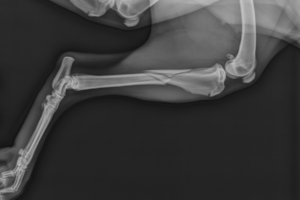Leading your workforce through what’s next

Terry Noble, Energy & Utilities Consultant, discusses some of the key takeaways from his recent webinar on leadership and preparing for the unknown with guest speaker Ryan Ramsey, transformation consultant and former submarine captain
Leadership at these times of uncertainty is critical. The accelerated pace of change has been momentous requiring a strong leader to make difficult decisions quickly and be the driving force of the organisation, navigating instability and unprecedented circumstances. This has been hugely challenging for organisational leaders and continues to be as we face further repercussions of the global pandemic.
To discuss his unique perspective on leading through uncertainty and personally challenging times, I asked Ryan Ramsey to be a guest speaker on a recent webinar. As a former captain of a nuclear-powered submarine, HMS Turbulent, and commander of a world-renowned submarine command course, he has learned to make decisions in incredibly pressured, constantly evolving situations. Ryan has applied these learnings to the private sector and led offshore exploration teams for Shell, delivered a multi-million-pound Capex projects for National Grid, and he now supports leadership teams to thrive through transformational experiences.
Here are the key takeaways from the discussion:
Life in isolation
Having lead deployments of up to 90 days underwater, Ryan is adept to periods of isolated working. From his experience, he wanted to share how he and his team managed to adapt to being cut off from the outside world and offered suggestions for how they were able to combat some of the anxieties and restlessness of isolation. “For both your mental and physical health and wellbeing, a routine is important and included in this it is highly recommended to set aside time for exercise”, said Ryan. The other key point he made was to take breaks and allow for rest. We have to accept the shift in lifestyle we have undergone is personally very challenging and it will still take time to adjust. For leaders at this time, it is critical these messages of prioritising wellbeing are disseminated to instil a balanced work-life culture while working remotely.
Consistency in leadership style
A key piece of advice Ryan shared for leaders was to be consistent. He mentioned the need to stay calm in the face of a crisis, saying there can’t be “too much of an emotional response”. Leaders must focus on being pragmatic and rational without allowing personal emotional responses to influence decision-making. On this point, Ryan did mention that despite this utilitarian approach, there is a distinct need for empathy. The role of a leader is to direct, but also to guide, support and set an example.
There also has to be consistency in involving and empowering co-workers; a leader must be able to enable others to be decision-makers. Ryan explained his approach on the submarines was to always encourage collaboration and collective thinking, saying, “it is always democratic until a decision has been made.” Opening the conversation up to the wider team allows the decision-making process to be a shared experience. This is what Ryan called “capturing the why”, explaining that all decisions and communications should be transparent, open and honest by sharing the rationale behind them. By bringing everyone into the process, giving them the opportunity to understand the situation and reasoning, trust can be built.
Team first, everything else second
As a leader, your team should be your main priority. You need to be managing work and deadlines, but critically the role is to ensure every person is supported. Ryan explained the importance of preparing for transition periods, focusing on the impending return to the office many of us will be facing in the coming months. He advised there are three types of people currently:
- Those who want to get back to office life because they miss the social aspect - they are fairly easy to encourage back.
- Those who are fearful of reintegration because of the health risk still present - they are going to need time, resources and flexibility to feel comfortable returning.
- Those who have been on furlough - they are going to be reintegrated at a time where they may be concerned with self-worth and value for the company or maybe are content with being paid for no work. In either situation, they will find the transition challenging and will need to be greatly supported to seamlessly rejoin working life.
All three categories of staff are having to manage great difficulties in their professional life, as well as many having personal hardships. It is a sensitive time with great levels of uncertainty so there is a need to direct efforts into individual needs, giving people the space and time to manage through instability. Ryan mentioned the Royal Navy’s use of decompression periods which enable the workforce to process their experiences as well as give an opportunity to support family and friends to recognise and accept change. This is just one example of ways in which organisations can offer additional support and resources to ease this transition period and bring a disparate workforce back together.
The presentation from Ryan covered a range of learnings from his experiences in exceptionally challenging circumstances and his ability to lead a large team through adversity. I would like to thank Ryan for his time and for sharing his insights.
For more information please contact Terry Noble.






